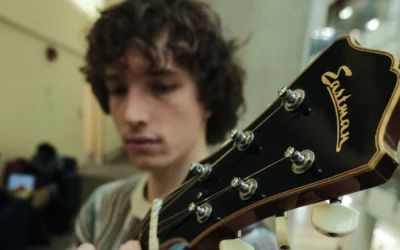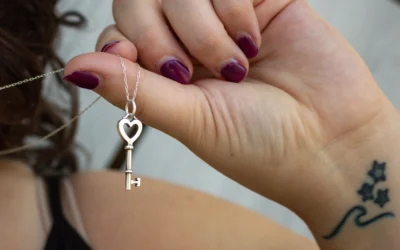Every year, the approach of spring marks an exciting time for student politics at MacEwan University — the Executive Committee (EC) election. The Executive Committee of the Students’ Association of MacEwan University (SAMU) is a governing body comprised of five unique roles — four vice presidents specializing in different areas and a president.
Their job, collectively, is to ensure that SAMU’s various initiatives and programs are in the best interest of students and to provide a voice for MacEwan students, both within the institution and to the outside world. While some EC roles have elements in common, the issues and responsibilities associated with each portfolio are unique:
Vice President External
The role of the Vice President External is to represent MacEwan students and SAMU to external
stakeholders. These stakeholders include municipal, provincial, and federal governments and all
parties within the provincial legislature and federal government. A main responsibility of the Vice
President External is to meet with politicians and other leaders to maintain connections and discuss aspects of the student experience over which their organizations have influence, such as tuition costs and mental health funding.
The position is very outward-facing, requiring an ideal candidate to be both outgoing and diplomatic, but sitting Vice President External, Andrew Bieman, said that public speaking skills improve over time in this role.
“(An ideal candidate would be) someone who’s calm and level headed. They don’t have to be smooth but they have to be clear and articulate when they speak; and someone who’s a people person at the forefront,” said Bieman.
Vice President Student Life
The Vice President Student Life role consists of representing students on committees and ensuring that the University is evaluating and developing the student experience beyond academics, according to current Vice President Student Life, Tansy Spyker.
Spyker stressed that the role is constantly evolving — and despite popular belief, it’s more of an advocacy role than anything to do with party planning.
She also identified empathy as being key in her role, along with a dedication to involvement on campus and a desire to better the lives of others. This position’s portfolio is diverse, engaging in topics ranging from indigenization to sexual violence awareness.
Vice President Academic
The Vice President Academic maintains academic relations with the University and addresses student academic concerns. This includes both advocating to MacEwan’s governance structure for changes that are important to students, like a week-long Fall reading break, and helping students pursue grievances and appeal academic decisions. This role is unique from the others because it provides face-to-face engagement in helping students.
Current Vice President Academic, Jackie Kent, outlined empathy, patience, and flexibility as components for success in this position. A passion for academics and commitment to the team dynamic of EC are also vital. Kent added that “it’s important to at least have a little passion for academics in general; because, at the end of the day, that’s why we’re all here.”
Vice President Operations and Finance
The Vice President Operations and Finance is the primary contact for SAMU’s money matters. In recent years, the main responsibility of this role has been assisting with the development of the SAMU Building. Other duties associated with this portfolio include various committee meetings and assisting with audits.
Sitting Vice President Operations and Finance, Emma Patterson, chose to run for and complete a second term so that she could maintain her involvement with the building’s development. She described the experience as both rewarding and frustrating in getting to see the progress in construction while also dealing with unexpected delays.
President
The role of the President includes providing support to the rest of the Executive Committee, as well as representing students to the University and representing the Students’ Association to the public. The President’s responsibilities also involve external advocacy in conjunction with the Vice President External, and assisting on large projects like the SAMU Building.
“The most meaningful part of it is being able to support the team,” said current President, Parvin Sedighi. “We’re not a hierarchy at SAMU, so the President doesn’t hold a superior position; but oftentimes — because the president is the contact person for so many things — they have an overview of how everything is going … you don’t get to go as in-depth, but you’re involved in all the pieces that come together.”
Sedighi outlined diplomatic skills, strong communication, and emotional intelligence as important qualities in a potential president. “I know the president’s title is the most intimidating, but realistically, it’s just about being the person who’s able to be that supportive figure in the office and outside of it as well.”
Campaigning for EC
Running for the position can seem like the most intimidating part of pursuing a role on SAMU’s Executive Committee, but multiple current EC members stressed that there are no qualifications for the position other than a passion for student issues. “The qualifications don’t exist,” said Sedighi. The main purpose of running a campaign is to have a vision for MacEwan and be able to convey that vision to others. “In particular, I think it’s really important for folks who have different experiences — students of colour, students living with a disability, or students from LGBTQ2+ backgrounds — to be getting involved and being engaged.”
Students who don’t have a large history of involvement with the Students’ Association are able to succeed in these roles, claimed Patterson. “(When campaigning) I just said, ‘I don’t know a lot about all of this either but I am so eager to learn.’”
As for the Vice President External portfolio, the experience of campaigning is quite similar to some of the daily responsibilities of the role, according to Bieman. “Just be genuine when campaigning,” he explained. “If you come off too contrived or forced, or you come off as trying to be a know-it-all, it shows. One of the weird and humbling experiences of this job is that sometimes you won’t know all the answers.” In Bieman’s opinion, it is better to be honest about not knowing something than to give a potentially misleading answer — both in campaigning, and in the position itself.
Campaigning for an EC position is a large undertaking, and Spyker reflected on the toll it can take on an individual. “Ask for help. Ask for help with running, collecting signatures, getting your word out. You can’t do it alone,” she advised. “There are 19,000 students you’re trying to reach. If you try to do it yourself, you’ll burn out before you’re even in the role.”
Sedighi emphasized the importance of a commitment to the issues that affect MacEwan students. “If you’re coming into this position because you want something neat to put on your resume, man you are so in the wrong place,” she said. “Obviously, there (are) those tangible benefits, but the amount of work you have to be willing to put in has to be paired with passion.”
Simply showing up to work is not enough for a member of the Executive Committee. “There’s just so much more that you need to be willing to give. It’s important for you to have that buy-in, and if you don’t, don’t run. There’s no value judgment there, but if you’re not willing to give it that kind of commitment, just don’t run. Find other opportunities — you’ll find other ways to hone your leadership — but this is not it,” Sedighi explained.
However, even if a candidate doesn’t get elected, it’s still a worthwhile experience to run according to EC members. “If anyone is thinking of running, definitely do it,” said Kent. “Unless you run for local, provincial, or federal politics, you’ll never have an opportunity to run a campaign remotely like this in your entire life.”
And when a candidate does succeed, the title can be a great point of pride for someone just beginning in their career. “It’s a position that gives back as much as you put in,” said Kent.
Graphic by Milo Knauer.





0 Comments